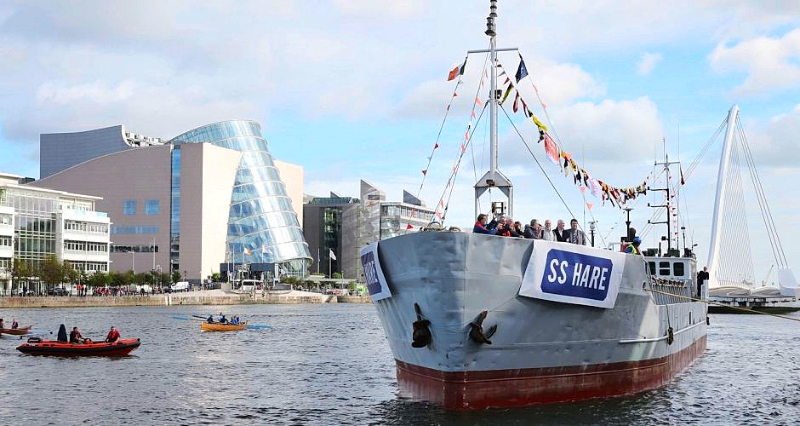RELATIVES of the victims of two U-Boat attacks, along with local historians and community groups from the Docklands area, have come together to mark the centenary of both World War One incidents.
The sinkings of both Dublin Port ships in December 1917 led to substantial loss of life from the city’s Dockland communities.
On December 14, the SS Hare was targeted as it travelled from Manchester to Dublin Port, while less than a fortnight later, on December 27, the SS Adela was sunk as it travelled to Liverpool.
To mark the centenary of both events, relatives of victims, local historians and community groups from the Docklands area have come together to ensure that the occasion is properly commemorated.
The group, which has held a number of meetings to date, plans to erect memorial plaques on the North and South Quays and to host memorial services to the vic-tims.
A publication, which will tell the story of the events will also be produced, and a programme of talks aimed at local schools and the general public and exhibition are also planned.
David Jones, whose great grand-father was aboard the SS Adela, said there were were over 150 ships sunk in Irish coastal waters as a result of submarine attacks in 1917.
“These two particular vessels are particularly important due to the heavy loss of life in the relatively small and tight knit communities around Dublin Port,” he said.
“A newspaper report from the time estimated that there were up to 100 dependents left behind by those who perished on the SS Adela.”
David Cotter, a co-ordinator with the group, suggests why these attacks are not better remembered.
“Due to war-time censorship the newspaper reports of the time did not acknowledge these tragedies as U-Boat attacks, and perhaps this has contributed to the lack of knowledge of these particular events,” he said.
“And remember, it was a time of major historical upheaval with the the Irish Revolution and the Great War.
“The following year the RMS Leinster was torpedoed in Dublin Bay with the loss of over 500 lives, so all these larger scale occurrences would have overshadowed the SS Hare and SS Adela tragedies.
“That is why it is so important, both for the relatives of those who suffered and for the local community, to ensure a proper and fitting commemoration takes place.”
Hilary Wallner is the grand-daughter of Able Seaman Joseph Hopkins of Pigeon House Road who died aboard the SS Hare.
“It is important to me that my grandfather is remembered, but the trauma and hardship his death caused for the surviving family members must also be acknowledged,” she said.
“All the victims must be properly commemorated, but we must also be aware of the long-term effect on those who survived.”
The SS Hare is best known as the ship that brought food packages to Dublin workers, provided by British trade unionists, during the 1913 Lockout.
When it was sunk on December 14, 1917 it was carrying a crew of 21. Despite the ship going down in a matter of minutes, 10 of these survived the attack in lifeboats.
Of the dead, five were from communities close to the Liffey, as were six of the survivors.
Over 1,000 leaflets hoping to help identify family members of the casualties and survivors of the attacks have been distributed in the Docklands area. However, the group have stressed that the commemoration is not just limited to those victims who resided in the Dublin Port area.
David Cotter added: “We intend this to be an open and inclusive commemoration.
“The casualties were not only from the local area, some were from other parts of Dublin and even a small number were from Great Britain.
“Hopefully more families will be in touch with us and get involved.”
Anybody who wants to get more involved or share information can contact the group by email to adelahare1917@gmail.com
